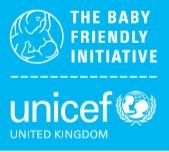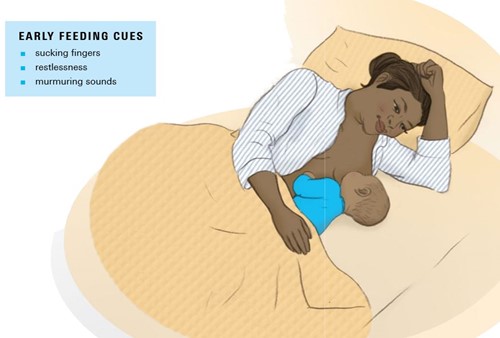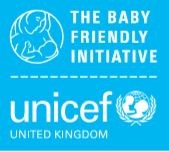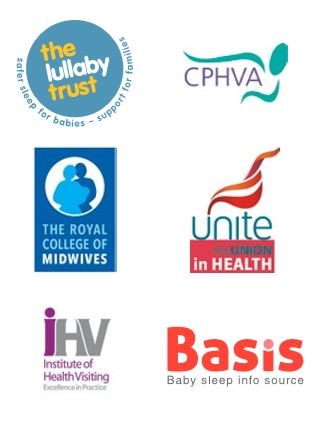Caring For Your Baby at Night
Becoming a parent is a very special time. Getting to know your new baby and learning how to care for her needs can be one of the most rewarding experiences of your life. However, it can also be challenging, especially when you are tired and your baby is wakeful and wanting to feed frequently during the night.
It might be reassuring to know that it is both normal and essential for your baby to feed during the night. Babies grow quickly in the early weeks and months of their lives and have very small stomachs. Therefore they need to feed around the clock to meet their needs.
"I try to keep the room cosy and peaceful at night"
While it can be frustrating when your sleep is disturbed during the night, it can also be a lovely quiet time to be with your baby away from the bustle and distractions of daytime. Babies rely on the security and comfort of being close to their parents and need this at night as well as during the day.
Getting Some Rest
It’s important to make sure you create the right environment to help you get as much rest as possible.
Keep the room fairly dark – switching on the light wakes everyone up and is not usually needed when you are feeding and comforting your baby.
Keep your baby close. The safest place for your baby to sleep is in a cot by the side of your bed. This means you can hear your baby and respond to her needs before she starts crying or becoming distressed, and reach her easily without having to get up.
Try not to stimulate your baby too much. As soon as she starts waking, offer her a feed so she doesn’t get too upset and difficult to settle. Talk to them in a soft, quiet voice and avoid changing their nappy or clothing unless really necessary.
Breastfeeding
Many women choose to feed their baby whilst lying in bed. Ask your midwife or health visitor to help you find a safe and comfortable position.
Early Feeding Cues:
- sucking fingers
- restlessness
- murmuring sounds
Tips For Partners
■ Make sure your breastfeeding partner is comfortable.
■ Pass her things, so she doesn’t have to reach for them.
■ Bring her drinks and snacks and make sure that she has a glass of water at hand as breastfeeding can be thirsty work.
■ Give plenty of support – breastfeeding is important for your baby’s and your partner’s health
Bottle Feeding
It is important to be organised in order to reduce disturbance when bottle feeding at night. Powdered milk is not sterile and can cause infections if made up in advance. Therefore you will need to make up feeds during the night. However, you can make this easier by having bottles and teats ready sterilised, the powder measured out and boiled water kept in a vacuum flask. The vacuum flask does not need to be sterilised but should be clean and only used for your baby. The water used to make the feed needs to be above 70°C. If the flask is full and securely sealed, the water will stay above 70°C for several hours.
You may also choose to use ready-to-feed milk at night.
Ask your midwife or health visitor for information on how to make up bottle feeds safely.
Never force your baby to take more than she needs in the hope that she will sleep for longer as this can cause her to become colicky and distressed and may result in her becoming overweight in the long term. Don’t add cereal or any other substance to feeds as this is dangerous for your baby. Always follow manufacturers’ guidelines with regard to amounts.
Breastfeeding is the healthiest way to feed your baby. If you decide not to breastfeed or to stop breastfeeding, it is possible to restart. Giving infant formula to a breastfed baby will reduce your milk supply. You do not need to eat any special foods while breastfeeding, but it is a good idea for you, just like everyone else, to eat a healthy diet.
When Babies Don't Settle
There may be times when your baby remains unsettled after feeds. Placing your baby in skin-to-skin contact with you and gently rocking can provide comfort. Your partner can help with this too.
If you are breastfeeding you can offer your breast again even if your baby has just fed. Babies find the suckling comforting and there is no risk of overfeeding a breastfed baby.
If you have had a particularly disturbed night, try to take time out to rest during the daytime. Visitors can wait – or help by taking over chores or looking after other children while you and your baby catch up on sleep.
If your baby is crying for long periods she may be ill and require a medical check.
“Skin-to-skin really helped my baby to settle down. We enjoy the time together.”
Putting Your Baby Down To Sleep
To keep your baby safe and to reduce the risk of sudden infant death (sometimes called cot death) always make sure:
■ You put your baby down on their back to sleep, never on their front or side.
■ The cot is beside the parents’ bed for at least the first six months.
■ The mattress is firm and flat – soft beds, bean bags and sagging mattresses are not suitable.
■ Your baby is not overdressed or covered with too much bedding (no more than you would use yourself).
■ The bedding must not be able to cover the baby’s head.
■ The room is not too hot (16-20ºC is ideal).
■ The room where your baby sleeps is a smoke-free zone.
Download the health professionals’ guide to this leaflet at Caring For Your Baby At Night Leaflet
If You Decide To Share a Bed With Your Baby
Some parents choose to sleep with their baby in bed and some fall asleep with their baby during the night while feeding and comforting whether they intend to or not. Therefore it is very important to consider the following points:
- Keep your baby away from the pillows.
- Make sure your baby cannot fall out of bed or become trapped between the mattress and wall.
- Make sure the bedclothes cannot cover your baby’s face or head.
- Don’t leave your baby alone in the bed, as even very young babies can wriggle into a dangerous position.
BEWARE
- It is not safe to bed-share in the early months if your baby was born very small or preterm.
- Do not sleep with your baby when you have been drinking any alcohol or taking drugs that may cause drowsiness (legal or illegal).
- Do not sleep with your baby if you or anyone else is a smoker.
- Do not put yourself in a position where you could doze off with your baby on a sofa or armchair.
What's Happening Tonight?
Having an alcoholic drink? Don’t have baby in your bed tonight as you will be less responsive than normal. It’s best to have another adult on hand to help with baby if you have drunk alcohol or taken drugs that make you less aware than normal.
Going on holiday or staying with family or friends? Make sure your baby’s sleeping position is safe even when they are not at home: bed positions, mattresses and duvets may not be the same as at home.
Letting your partner sleep? If you feed baby in another room be aware that falling asleep with baby on a sofa or armchair increases their risk of injury and sudden infant death.
Baby unwell? It’s natural and important to keep baby close to you if they are not well. Be careful not to overdress them or use too many covers, especially if they are running a temperature.
Remember breastfeeding protects your baby against Sudden Infant Death Syndrome (SIDS) and the more you breastfeed the greater the protection. Babies need to feed during the night so talk to your midwife or health visitor about feeding positions which help you rest and minimise risk to your baby.
About Unicef
Unicef works in more than 190 countries to keep children safe around the world. Unicef UK’s Baby Friendly Initiative works with hospitals, in community healthcare settings and universities to help them protect, promote and support breastfeeding and to strengthen mother-baby and family relationships. Visit unicef.org.uk/babyfriendly
More Information
The Community Practitioners and Health Visitors Association (CPHVA) is the UK’s leading professional organisation for health visitors, school nurses, nursery nurses and other community nurses working in primary care. The CPHVA is a professional organisation within the Unite trade union representing the professional interests of practitioners throughout the UK.
The Baby Sleep Information Source (BASIS) provides research-based evidence about infant sleep for parents and health professionals. Established by Anthropologists at the Durham University Parent-Infant Sleep Lab in collaboration with Unicef UK, the National Childbirth Trust and La Leche League, BASIS runs as a non-profit-making outreach project of Durham University. Visit www.basisonline.org.uk
The Institute of Health Visiting (iHV) is a UK Centre of Excellence supporting the development of high quality health visiting services. There are five pillars to our work: research, quality assurance, education, leadership and partnership working. Visit the website which has a Families section: www.ihv.org.uk
The Lullaby Trust provides expert advice on safer sleep for babies, supports bereaved families and raises awareness on sudden infant death. For more information about SIDS and risks, visit www.lullabytrust.org.uk or call free 0808 802 6869. For bereavement support call the free helpline on 0808 802 6868.
The Royal College of Midwives (RCM) is the UK’s only trade union and professional organisation led by midwives for midwives. The RCM promotes midwifery, quality maternity services and professional standards and influences on behalf of its members and for the interests of the women and families for which they care. Visit www.rcm.org.uk
020 7375 6144
bfi@unicef.org.uk
unicef.org.uk/babyfriendly













